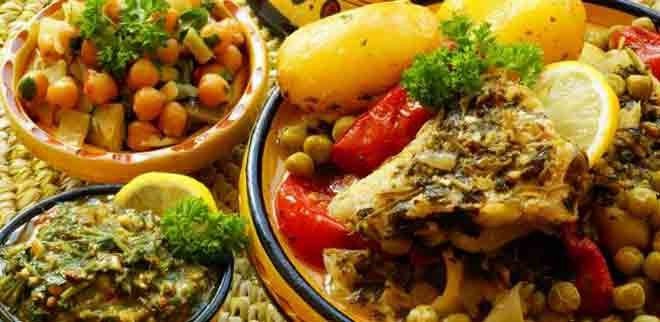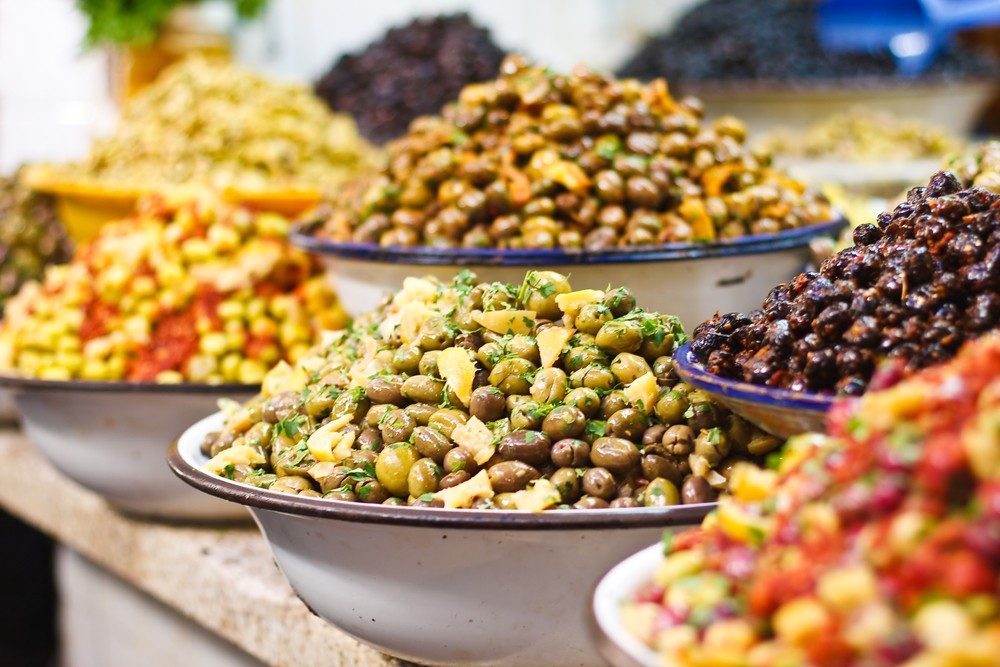1-800-787-8806 | In Morocco + 212-618-88-26-81 | Mail: alecia@morocco-traveler.com
20
Mar
 Lemons preserved in a saltlemon juice mixture bring a unique facet to many Moroccan chicken and pigeon dishes. Nuts are prominent: pine nuts, almonds, and pistachios show up in all sorts
of unexpected places. Moroccan sweets are rich and dense confections of cinnamon, almond, and fruit perfumes that are rolled in filo dough, soaked in honey, and stirred into puddings. Spices are used extensively in Moroccan food. While spices have been imported to Morocco for thousands of years, many ingredients, like saffron from Taliouine, mint and olives from Meknes, and oranges and lemons from Fes, are homegrown. Common spices include karfa (cinnamon), kamoun (cumin), kharkoum (turmeric), skingbir (ginger), libzar (pepper), tahmira (paprika), anise seed, sesame seed, kasbour (coriander), maadnous (parsley), zaafrane beldi (saffron), and mint.
Lemons preserved in a saltlemon juice mixture bring a unique facet to many Moroccan chicken and pigeon dishes. Nuts are prominent: pine nuts, almonds, and pistachios show up in all sorts
of unexpected places. Moroccan sweets are rich and dense confections of cinnamon, almond, and fruit perfumes that are rolled in filo dough, soaked in honey, and stirred into puddings. Spices are used extensively in Moroccan food. While spices have been imported to Morocco for thousands of years, many ingredients, like saffron from Taliouine, mint and olives from Meknes, and oranges and lemons from Fes, are homegrown. Common spices include karfa (cinnamon), kamoun (cumin), kharkoum (turmeric), skingbir (ginger), libzar (pepper), tahmira (paprika), anise seed, sesame seed, kasbour (coriander), maadnous (parsley), zaafrane beldi (saffron), and mint. Copyright 2015 by Morocco Traveler - All Rights Reserved